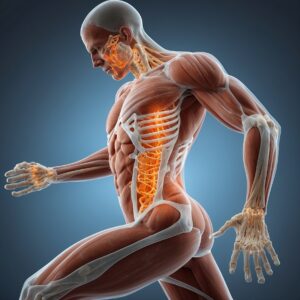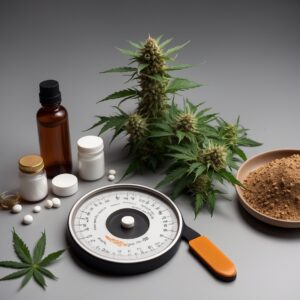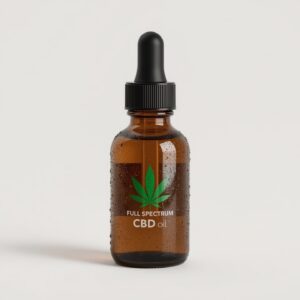Cannabis is being tried and tested in all fields of life for the last 50 years. Deeper studies and research have only been possible in the last 25 years with the tools and technology available to us. So where does cannabis lye in terms of exercise recovery, is it the next revolution or just a minor help.
What Does Cannabis Do to the Muscles After a Workout

Cannabis works primarily with our ECS (Endocannabinoid system) which has a great effect in many areas of our mental and physical health. The important topics to point out are:
Muscle relaxation: Cannabis pushes receptors to send out the “calm down” message to the whole body. Which is naturally used to reduce stress by the ECS, this is a big positive for recovering muscles. The dosage needs to be just right in all the topics I will mention & use only to improve results and not for recreational use.
Reduction of inflammation: Inflammation can be good for when you are working out. That is why weightlifters’ muscles get bigger while lifting weights at the gym. Yet once you leave it is good for the muscles to calm down, hence ice baths. CBD and THC work well to reduce inflammation.
Pain relief: Paine can be… well, a pain. So, anything to get rid of it in the healthiest way is an attractive solution. Cannabis has minor effects in this area and can help the mind focus on other thoughts. This solution is mainly provided by THC.
Many of these results are subjective and change from person to person. Some may re-act badly to THC while others may not feel any effects of CBD. Cannabis is not the golden bullet to solving exercise recovery, yet it has great effect on one of the biggest regulating systems in our body, the ECS.
How Effective Is It, Really

The science is still young but growing. Early studies suggest that cannabinoids may help reduce inflammation and improve recovery markers, particularly by improving sleep quality. Better sleep means more efficient muscle repair and hormonal balance.
Unlike supplements with clear dosage guidelines, cannabis research lacks standardization, which makes consistent evidence harder to pin down.
Compared to traditional methods like cold plunges, pain killers, sleeping pills, muscle enhancements like creatine and L-glutamine, there really isn’t much a reason for pro athletes to be taking this drug unless they have a strong preference.
A Real Case Study

A study conducted by the University of Colorado Boulder surveyed endurance athletes who used cannabis before and after workouts. The findings showed:
Many athletes reported reduced pain and muscle soreness after exercise.
Cannabis users often claimed they were able to recover faster and maintain a consistent training schedule.
Interestingly, a majority of respondents noted that cannabis improved their sleep quality, which they felt was the biggest recovery benefit.
Still, researchers were cautious to point out that these were self-reported results rather than hard clinical measurements. In other words, the perceived benefits are real for many athletes, yet more controlled studies are needed to confirm the extent.
Other Case studies: CU Boulder “SPACE” / related studies
The Legalities: Who Can Use It, and Where

This is the complicated part of the story. As you can imagine, every country, state competition, sport and coach has different sets of rules. For the WADA (World Anti-Doping Agency) Cannabis (specifically THC) is banned in competition, but CBD is allowed.
While professional sports like MMA, UFC and snowboarding allow the use of cannabis as it can be high stress and endurance, plus the authorities are just more lenient towards it.
While the Olympics are obviously the strictest, no sign or trace of THC otherwise disqualification will follow. This is because of numerous reasons, the main one being that it puts the athlete’s health at risk. You need to be at top form to compete, and THC does not help with making split second decisions.
When Did It All Start?

Cannabis and athletics aren’t a new pairing. In the 1960s and 70s, endurance athletes like long-distance runners and cyclists were known to experiment with cannabis for focus, relaxation, and recovery. During this time, cannabis was closely tied to counterculture movements, so it remained taboo in professional sports.
In recent years, however, legalization and wellness culture have shifted perceptions. More athletes, from NFL players to ultramarathoners are speaking openly about their use of cannabis for pain management, sleep, and recovery. What was once underground is now being studied in labs and openly discussed in sports medicine.
The most effective way to use it

Any athlete should never smoke cannabis for obvious lung irritation & risks. Edibles aren’t exactly ideal either, so we are left with drops. Drops under the tongue in controlled dosages, very small dosages that are rather frequent.
Less THC and more CBD is better. Just THC is usually a no go, this is only sought after by recreational users. THC 1:1 CBD, this is more common as there is a balance between the two. Still, this should be kept at lower dosages as it can be addictive and easily over consumed.
Full spectrum CBD, the crown jewel of taking cannabis as a complement supplement. Small amounts of THC plus all the benefits of terpenes and the major (legal) part, CBD. Even CBD isolate can be good for sports recovery as it doesn’t have any side effects at all.
Conclusion
Cannabis use in sports recovery is no longer a fringe idea, it’s becoming part of the conversation in gyms, locker rooms, and even medical journals. While research is ongoing, many athletes find that cannabis supports their recovery by easing muscle soreness, improving sleep, and promoting relaxation.
